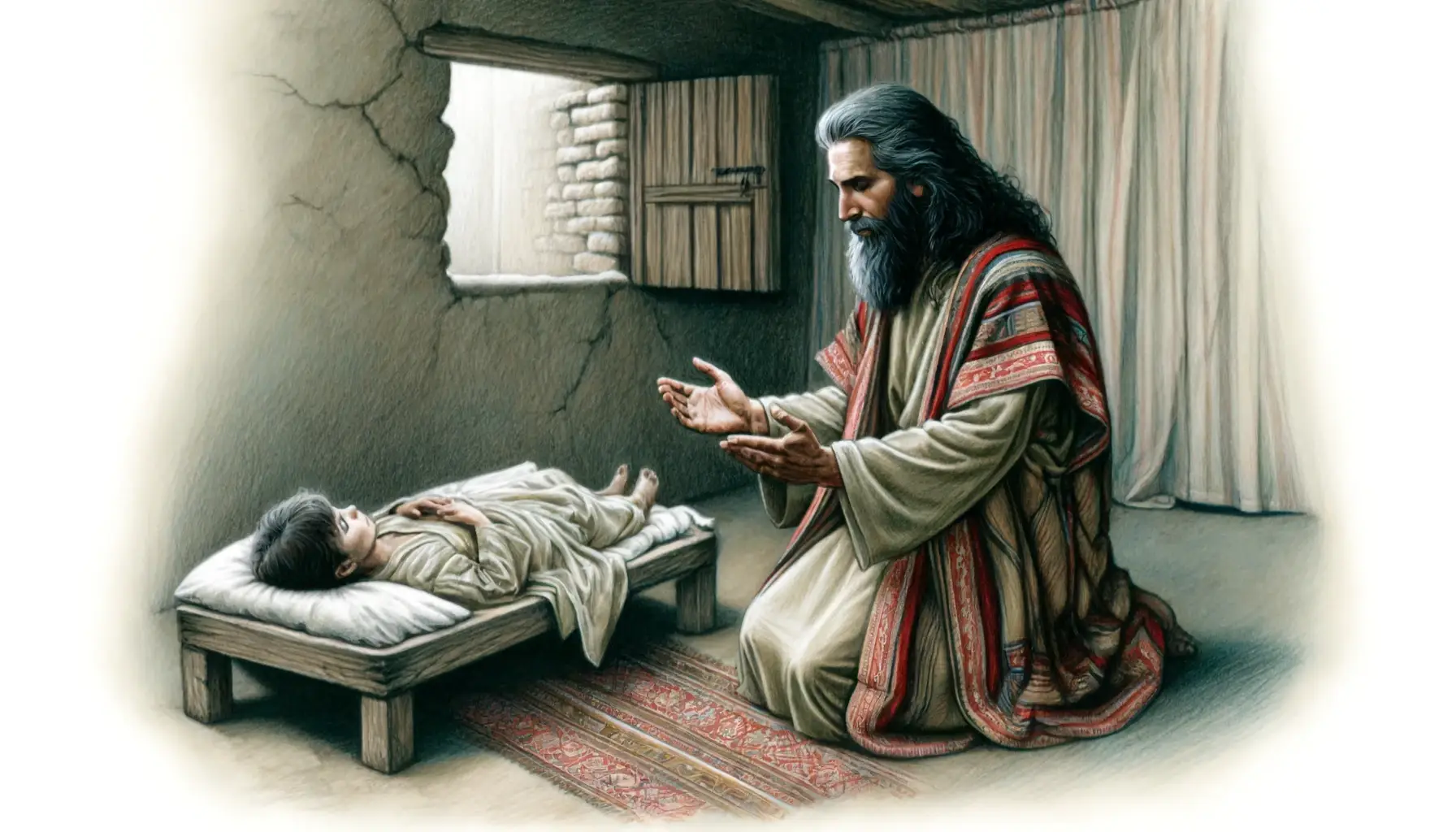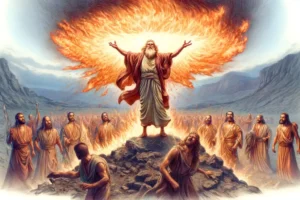
Resurrection of the Widow’s Son by Elijah
Here are some quick facts about the resurrection of the widow’s son by Elijah:
- Biblical Reference: The event is detailed in 1 Kings 17:17-24.
- Location: This miracle takes place in Zarephath, which is located outside of Israel in the region of Sidon.
- Participants: The miracle involves Elijah, the widow of Zarephath, and her son.
- Nature of the Miracle: After the widow’s son falls ill and dies, Elijah prays over the boy and he is miraculously brought back to life.
- Significance of the Miracle: This is the first instance in the Hebrew Bible of a prophet performing a resurrection, highlighting the unique power of God working through Elijah.
- Theological Implications: The miracle reinforces the truth of Yahweh’s supremacy over life and death, countering the idolatrous beliefs surrounding Baal worship, which included notions of control over fertility and life.
- Response of the Widow: The widow’s acknowledgment that Elijah is a man of God and that “the word of the Lord in [Elijah’s] mouth is truth” signifies a reaffirmation of faith in Yahweh’s power and promises.
The resurrection of the widow’s son by Elijah, as recounted in 1 Kings 17:17-24, is a pivotal miracle that carries significant theological and narrative weight within the broader context of Elijah’s ministry. This event not only demonstrates God’s power but also cements Elijah’s role as a true prophet of Yahweh in a foreign land, thereby reinforcing the universality of God’s reach and concern.
Contextual Background
This miracle occurs after Elijah’s arrival in Zarephath, a region outside of Israel and under the influence of Phoenician idolatry, including the worship of Baal. The widow, initially a stranger to Elijah, had already experienced Yahweh’s miraculous provision through the unending supply of flour and oil, setting the stage for an even greater demonstration of divine power.
The Miracle’s Narrative
- Initial Despair: The narrative heightens with the sudden illness and death of the widow’s only son, which plunges her into despair. This tragedy prompts a poignant theological and personal crisis, as the widow confronts Elijah, questioning the purpose of his presence and the justice of God.
- Elijah’s Response: Elijah’s reaction to the widow’s plight is deeply empathetic; he does not offer platitudes but takes the dead child from her arms and carries him to the upper room, where he earnestly seeks God’s intervention.
- Act of Resurrection: In a threefold act of supplication, Elijah stretches himself over the child while pleading for the boy’s soul to return. This physical act symbolizes an intense intercessory prayer, bridging the gap between human desperation and divine capability.
- Divine Vindication: The child’s return to life is not only a reversal of death but also a divine affirmation of Elijah’s prophetic authority and the truth of Yahweh’s power. It serves as a palpable sign that God controls life and death, challenging any claims from Baal worship regarding control over life forces.
Theological Significance
- Affirmation of Yahweh’s Power: The miracle serves as a theological statement about Yahweh’s sovereignty over life and death, directly contesting Baal’s supposed dominion over fertility and life, which was central to Canaanite religion.
- Faith and Revelation: The widow’s response, recognizing Elijah as a man of God and the word of the Lord as truth, highlights a moment of profound personal revelation and conversion, pointing to the transformative power of witnessing God’s acts.
- Prophetic Legitimacy: By performing this miracle, Elijah not only demonstrates God’s power but also solidifies his own legitimacy as a prophet. This act of raising the dead would have significantly bolstered the credibility of Yahweh’s message through Elijah, particularly in a gentile region.
Broader Implications
The event prefigures later biblical narratives of resurrection, most notably in the ministry of Jesus. Like Elijah, Jesus performs resurrections that affirm His divine authority and preview the ultimate resurrection. Elijah’s actions here foreshadow the deeper themes of life, death, and divine intervention that are central to Christian theology.
In summary, the resurrection of the widow’s son by Elijah is a multifaceted miracle that transcends its immediate context to offer profound insights into God’s nature, the role of His prophets, and the dynamics of faith and divine revelation. It reinforces the message of God’s supreme power over life, serving as a foundational precedent for understanding biblical themes of resurrection and divine authority.
Leave A Reply
You must be logged in to post a comment.




1 Comment